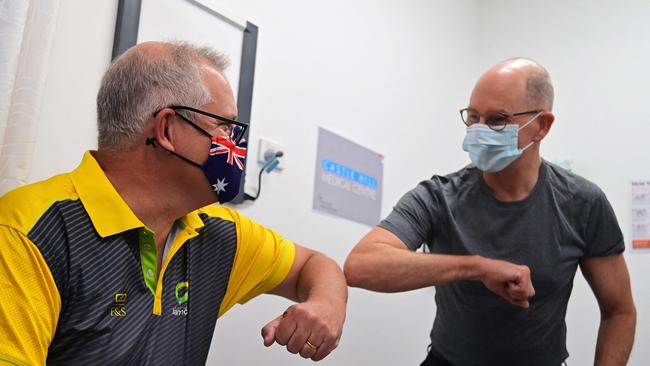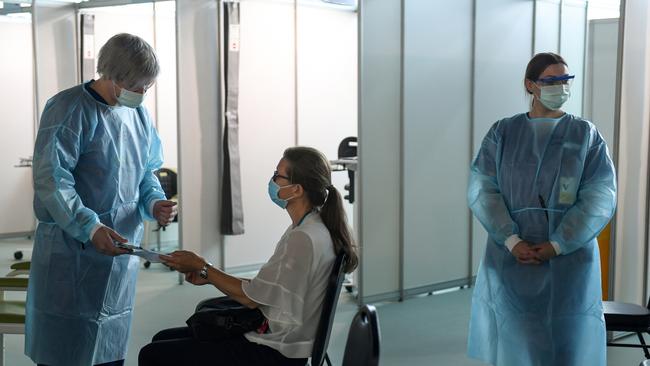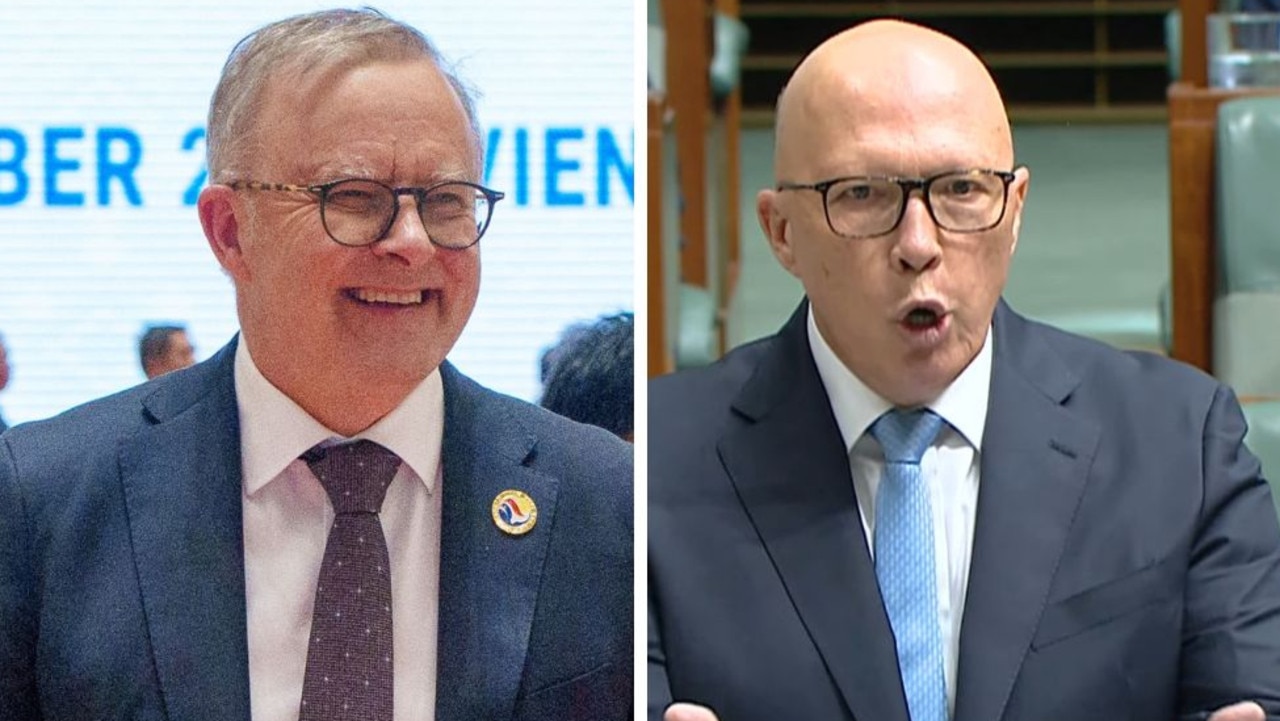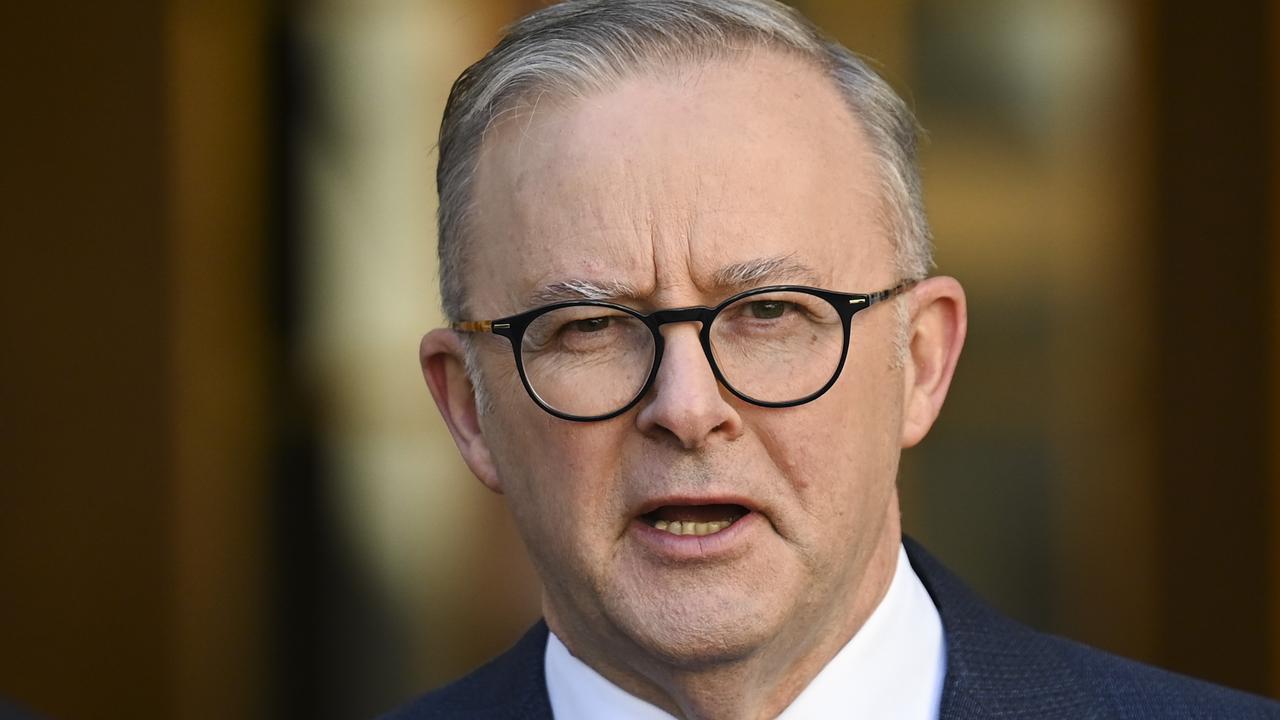Patrick Carlyon: Australia’s embattled coronavirus vaccine rollout is a case study in muddled strategy
For bureaucratic incompetence, and its lack of foresight, the rollout plan compares with the choice of private security for Victoria’s hotel quarantine program.
Patrick Carlyon
Don't miss out on the headlines from Patrick Carlyon. Followed categories will be added to My News.
Prime Minister Scott Morrison sounded so confident. Four million vaccinations by the start of April, he said. We could almost set our timetables and way of life to it.
Morrison should have called his target what it was — a non-core promise. Instead of four million, there were 670,000 vaccinations, or a titch over one sixth, by the end of March.
What did Morrison do? He set a new target, another non-core promise. Six million vaccinations by May 10, he vowed, and no matter that experts say the target is doomed to fail.
The nation’s vaccination rollout, in its unwieldy fullness, has been revealed as a case study in muddled strategy. Near enough is good enough, apparently, even if it is not very good.
We love to extol “world’s best practice” in this country. Yet Rwanda and Albania, where war, persecution and poverty is common, have higher vaccination rates than Australia, which does not make the top 100 countries.
Our rollout was broken before the vagaries of vaccine supply emerged. For bureaucratic incompetence, and its lack of foresight, the rollout plan compares with the choice of private security for Victoria’s hotel quarantine program.

There were months to prepare for the rollout. There were overseas rollouts to examine. Nothing less than the liberties and livelihoods of a nation depended upon an efficient program.
In recent days, in the rush of accusation and raw numbers, truths have emerged. The federal government’s rollout model was always flawed, and lots of people knew it.
Under the plan, the commonwealth would distribute vaccinations to nursing home residents. The states were mandated to vaccinate healthcare workers.
There were unexpected hiccups, as there always would be. Millions of expected doses were halted by Europe. Some healthcare workers have been reluctant to get the jab after colleagues felt decidedly unwell in the 24-36 hours after their vaccinations.
Yet these problems do not explain the bigger shortcomings. Far fewer aged-care residents than projected have received one dose, much less the prescribed two.
The states say they are tethered to unpredictable supply lines from the commonwealth. They have a point; you can’t plan to distribute doses you do not know you will receive.
GPs have been giving jabs to eligible Australians, even though the mathematical impossibility of mass coverage through a GP program was well understood. The doctors field angry calls from patients who ask reasonable questions — such as when — which they cannot answer.
The Morrison targets were always wishes rather than realities. To airily present them as otherwise goes to the vacuum of leadership that has permeated the pandemic response from the beginning.

Politics, rather than people, has driven the agenda, both at state and federal levels. We have been poorly served by leaders who prioritise the bumps of the news cycle ahead of the needs of their people.
All willing Australians are supposed to be vaccinated by October. But right now it sounds like a kind of Dorothy clicking her heels approach. It might happen, and we really want it to happen, but no one seems able to explain how it will happen.
It’s poor governance for a country that has every natural advantage. Australia boasts space and isolation, and unmatched standards of living.
We have been a compliant people who have accepted draconian measures for our own good. We have bowed to tin-pot premiers who have applied a chemotherapy approach to eliminating the constant threat. They fan fears and impose laws for reasons that have nothing to do with our health.
Morrison has said the rollout was “not a race”, despite the clues, from lockdown cities to border closures, that there is no greater race. Entire cities and industries have been reliant on the timeliness of the rollout.
His leadership has until recently been flattered by the COVID crisis. It has smudged his seeming inability to connect with the bushfires disaster, and his more recent clumsiness about cultural misogyny in Canberra.
At times, on all three issues, Morrison has appeared to loiter without much intent. The urgency expressed by others has seemed to bypass him. Imagine if the country’s greatest historical leaders, from Sir John Monash to John Curtin, applied a similar lack of rigour to their crisis responses.
Vaccinations are the passport to yesteryear, when crowds gathered without limit and Easter holiday plans were not jeopardised by the movements of a stripper/tradie a couple of thousand kilometres away.
When a Melbourne vaccination centre is almost empty, and turning away eligible oldies, it’s time to borrow from some shining lights of organisation and system.
We should follow the leads of Rwanda and Albania. We must do better.
Patrick Carlyon is a Herald Sun columnist





